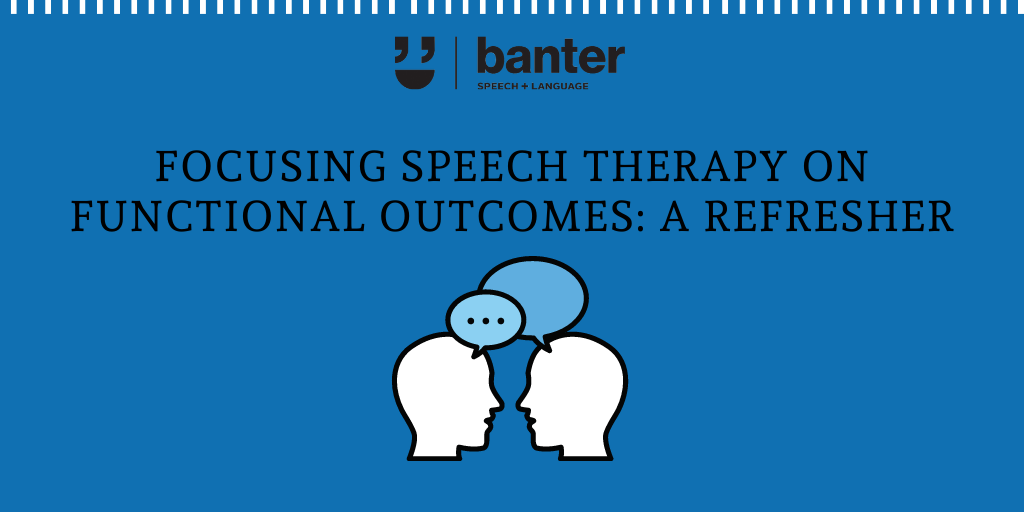Focusing speech therapy on functional outcomes: a refresher
Traditionally, many speech pathologists were trained to break their clients’ communication difficulties into parts in order to identify and treat communication ‘disorders’, e.g. speech sound disorders, voice disorders, fluency disorders like stuttering, developmental language disorders, and dyslexia.
But most clients don’t see their challenges as disorder ‘types’. They might say:
- ‘No one understands me’;
- ‘I have trouble talking’; or
- ‘I can’t follow conversations or understand what I’ve read’.
Health is a human right. Health includes physical, mental and social well-being – not just the absence of disorders.
People have a right to live capable, functioning lives. Communication problems often affect people’s mental and social well-being.
The diagnosis of a disorder does not predict function: A diagnosis doesn’t alone say much about its effects on a person’s overall health and quality of life.
Communication disorders can affect:
- mental health;
- basic activities, like communicating; and
- participation in routine activities, like school and play for children; and work and maintaining a household for adults.
The line between activities and participation is often hard to draw with communication because it usually involves interaction with others.
Often, differences emerge between how people perform communication tasks in a clinic, and how they do them ‘out in the real world’.
Clients have legal rights to make informed decisions about their health care and to choose goals that matter most to them.
Key source: Threats, T. (2008). Use of the ICF for clinical practice in speech-language pathology. International Journal of Speech-Language Pathology, 10; 1-2: 50-60.

Related articles:
- Not about ‘fixing’: using the ‘F-word Framework’ to support children with communication disorders and their families
- Parents of children aged 0-5 years: 10 practical ideas to increase you child’s participation and communication skills
- Parents of children aged 6-12 years: 10 practical ideas to increase you child’s participation and communication skills
- Parents of children aged 13-15 years: 10 practical ideas to increase you child’s participation and communication skills
- Parents of teenagers aged 16-18 years: 11 ideas to increase participation and communication skills

Hi there, I’m David Kinnane.
Principal Speech Pathologist, Banter Speech & Language
Our talented team of certified practising speech pathologists provide unhurried, personalised and evidence-based speech pathology care to children and adults in the Inner West of Sydney and beyond, both in our clinic and via telehealth.








